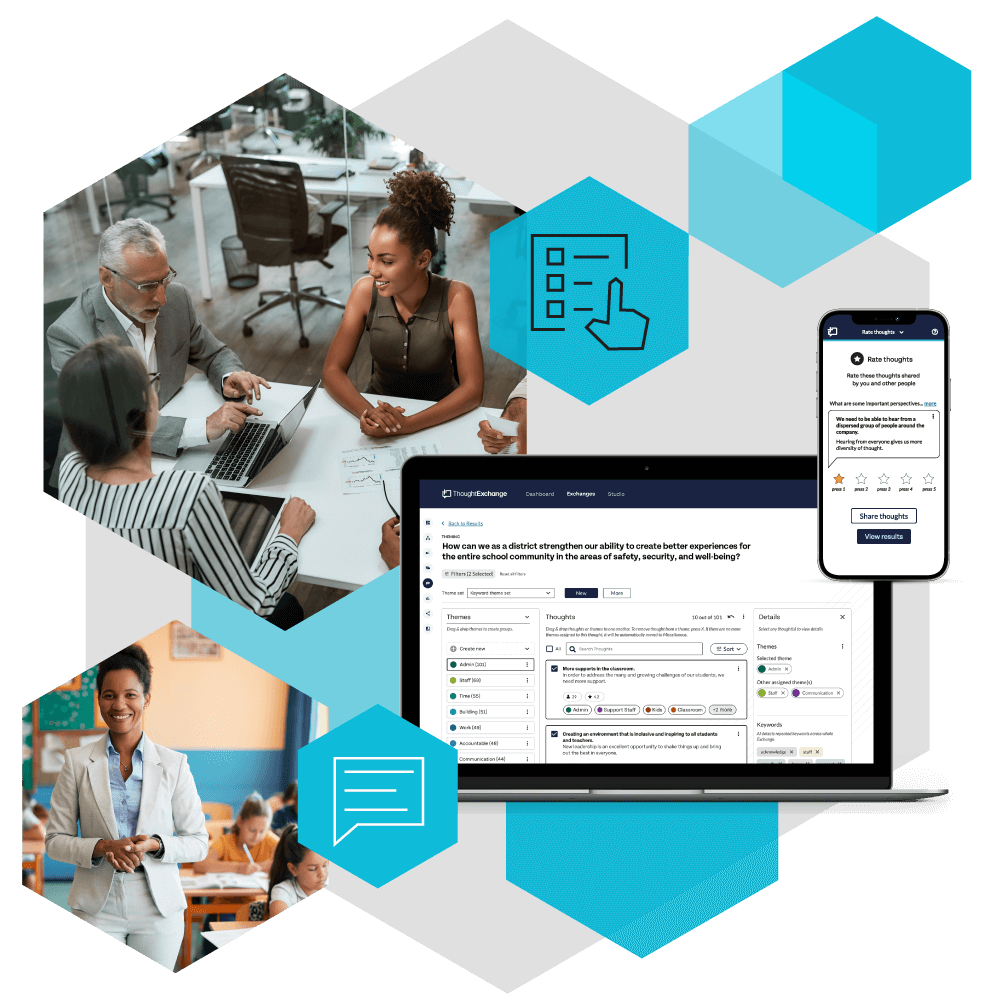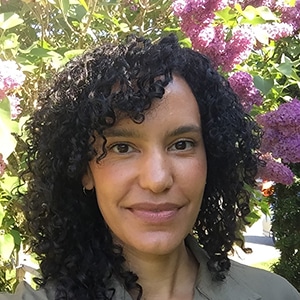The State of AI in Denver’s Education and Public Sectors: 4 Experts Share Their Thoughts











In the public space, AI acceptance varies among leaders. While some are wary of its potential pitfalls, others wholeheartedly embrace the cutting-edge technology in the workplace and community.
We wanted to hear first-hand how AI is changing leaders’ approach to public engagement. So we hosted The Impact of Technology & AI on Public Engagement in Denver, CO, featuring experts Amy Bhikha, Chief Data Officer at the Colorado Governor’s Office of Information Technology (OIT); Jenny Schiavone, Chief Digital Officer at the City and County of Denver; Dr. Richard Charles, Chief Information Officer for Denver Public Schools; and Dr. Alex Marrero, Superintendent of Denver Public Schools.
In this Article
- The State of Colorado ensures ethical, transparent, and secure AI use while supporting innovation
- The City of Denver prioritizes accessibility for a user-friendly online experience
- Denver Public Schools approaches AI with caution
- Denver Public Schools prioritizes meaningful listening for strategic planning
At a similar panel in Atlanta in February 2024, speakers used words like “scary” and “unknown” to describe AI. However, this panel revealed a significant shift in tone—with participants using words like “transformational,” “fascinating,” “exciting,” and “life-changing.”
Together, our group of experts discussed the multifaceted role of artificial intelligence (AI) in community engagement and explored how leaders could harness it to promote inclusivity and accessibility while ensuring that technological advancements benefit community members.
We discussed how leaders could balance ethical and privacy concerns with using AI for community betterment and safeguarding individual rights. Education and awareness emerged as pivotal components, seeking ways to enhance public understanding while building trust.
Explore some key insights from our panelists below.
The State of Colorado ensures ethical, transparent, and secure AI use while supporting innovation
"When you're in the public sector, it's very much about trust. It's not about making money—and that trust mantle has to be really high."Amy Bhikha, Chief Data Officer at the Colorado Governor’s Office of Information Technology (OIT), shared that AI is becoming central to public sector operations—while focusing on ethical, transparent, and secure use in tandem with innovation.
In Colorado, they’re actively tracking AI legislation and using community input to create guardrails that address consumer protection, transparency, and ways to avoid discrimination. “When you're in the public sector, it's very much about trust. It's not about making money—and that trust mantle has to be really high,” Bhikha said. “So anything that's public-facing, we've been pretty cautious on." As legislation evolves quickly, a public task force meets monthly to refine its language, aiming to take effect in 2026.
“We knew there'd be great efficiency gains—I think what we've also seen is a lot more creativity.”
Colorado has trialed AI tools across state agencies. 150 employees tested new applications and contributed insights on efficiency and creative impacts. Bhikha and her team were pleased with the results. “We knew there'd be great efficiency gains—I think what we've also seen is a lot more creativity,” she shares. “People feel like they're not just doing their jobs faster but doing them better.”
To ensure AI’s benefits are inclusive, the state prioritized accessibility by including employees with diverse needs, who reported life-changing experiences, especially when AI-generated content enriched their ability to engage with visual materials.
Bikha maintained that human oversight is critical for high-risk applications, with additional scrutiny from the governor’s office for specific use cases. In balancing these technological advancements with ethical considerations, Colorado aims to merge AI’s potential with strong governance, creating a trusted and impactful AI integration across public services.
The City of Denver prioritizes a user-friendly online experience with AI
“How can we use AI to create more cohesiveness? How can we [support people who say], ‘I want to bypass a human. I wanna do it myself, and I wanna do it fast and seamlessly’?"In her role as Chief Digital Officer for the City and County of Denver's Department of Technology Services, Jenny Schiavone’s approach to resident and community engagement has evolved significantly with AI technology.
Initially, the city focused on streamlining its digital presence to make services accessible across 50 diverse agencies. Schiavone asked, “How can we use AI to create more cohesiveness? How can we [support people who say], ‘I want to bypass a human. I want to do it myself, and I want to do it fast and seamlessly’?"
The city wanted to prioritize equity and accessibility and create a welcoming, user-friendly experience. However, maintaining consistent multilingual access across thousands of web pages was challenging, so they turned to automated AI.
Denver launched a chatbot called Sunny in 2023. It was designed to serve as an extension of the city’s 311 system, a catch-all for public inquiries—whether someone was calling to talk to the solid waste department about a missing trash can, or needed to talk to human services about benefits.
Maintaining consistent multilingual access across thousands of web pages was challenging, so they turned to automated AI.
According to Schiavone, Sunny can handle inquiries in 72 languages and offers immediate user-friendly assistance without human intervention. In fact, the chatbot has reduced call center reliance by deflecting 25–35% of inquiries.
Sunny’s design allows residents to access information easily and quickly across departments, improving service speed and accessibility. Approximately 95% of interactions remain within the chatbot.
By creating this digital solution, Denver has enhanced its service capacity and laid a foundation for further AI-powered improvements. It envisions broader, more innovative applications for future community engagement.
Denver Public Schools approaches AI with caution
"If we use poor data in these tools, it’s not going to be successful."Dr. Richard Charles, Chief Information Officer for Denver Public Schools, emphasized AI's transformative nature and the importance of taking a cautious approach when integrating it into education. He said that as AI technology evolves, educators must prepare students for using it.
But how do educators prepare kindergarteners who will graduate in 2036 for future jobs and technologies that don’t even exist yet?
But how do educators prepare kindergarteners who will graduate in 2036 for future jobs and technologies that don’t even exist yet?
Dr. Charles stressed that teaching students how to learn—rather than focusing on specific technologies—is critical. This is because technological advancements are accelerating too quickly for educators to keep up with specific skills training.
Instead, they need to help students become adaptable learners who can apply new knowledge effectively. What’s more, teachers need to understand themselves as learners to guide students in navigating this fast-paced landscape.
Dr. Charles highlighted the importance of involving parents and the community in AI integration, as many are unaware of both the opportunities and risks AI poses in education. He cautioned against over-reliance on AI tools, noting that as models grow more complex, their potential for errors increases, particularly with data biases and “hallucinations” in feedback loops. "If we use poor data in these tools, it's not going to be successful,” he noted.
To address these challenges and promote responsible AI use in education, he advocates for a collective approach. “We don’t have time for peer-reviewed journals,” said Dr. Charles. “So if you’re discovering things, let’s have a repository as a state where we're sharing what we're learning from these tools."
Denver Public Schools focuses on broader listening for strategic planning
“I needed to hear everyone else. Some who feel invisible, feel like they don't belong.”Dr. Alex Marrero, Superintendent at Denver Public Schools, shared his experience with effective family and community engagement for strategic planning and discussed the importance of meaningful listening, especially to historically marginalized groups.
As a newcomer to his district, Dr. Marrero was unfamiliar with the local community. He needed time to engage in deep listening and learning with those who were already adept at navigating the system—and especially those who felt disconnected.
“There's a saying that [leaders] hear from those who know how to navigate the system, those who have access to very important people, and those who are savvy enough to figure it out. And those who are loud and obnoxious enough,” Dr. Marrero shared. “I needed to hear everyone else, some who feel invisible, or feel like they don't belong.”
After engaging the community and gathering insights, Marrero assembled a team to analyze the resulting data over 110 days. He said they did it “the old school way”—manual data analysis—and the process took his team months.
After engaging the community and gathering insights, Marrero assembled a team to analyze the resulting data over 110 days. He said they did it “the old school way”—manual data analysis—and the process took his team months.
Marrero mentioned that if he’d used a better survey technology, he would have surfaced his strategic priorities immediately. He knows this because of his experience using ThoughtExchange to provide a timely, strategic response to a crisis incident at DPS.
After a tragic event occurred in his district, Dr. Marrero used the ThoughtExchange platform to hear from his community and honor their voices and opinions in a strategic plan to address the incident. The platform allowed him to provide fast answers to their pressing questions, and communicate relevant talking points and solutions that resonated with his community.
“I'm forever grateful to ThoughtExchange because it allowed us to get through one of the toughest parts in my entire career,” Dr. Marrero shared. “As a result, we were able to build a robust strategic plan around safety—and a very timely one."
Overall, Dr. Marrero highlighted AI’s potential to streamline future engagement processes at DPS, and plans to incorporate the technology to improve his district’s responsiveness in strategic plans that will evolve through 2026.
Ethical AI for meaningful engagement
The role of AI in public engagement is evolving, and discussing impacts and solutions is critical. In our panel, Amy Bhikha, Jenny Schiavone, Dr. Richard Charles, and Dr. Alex Marrero shared their invaluable experiences with using AI in government and education. For them, AI has provided unprecedented opportunities to streamline processes, enhance efficiency, improve equity and accessibility, and innovate community engagement.
AI is a powerful tool for optimizing public inquiries, elevating the voices of marginalized groups for strategic planning, aiding in incident response, and fostering community trust.
While we know that AI can make jobs easier and more efficient, prioritizing human perspectives for public engagement is key. At ThoughtExchange, as we continue to evolve, we’re committed to using AI responsibly and safely.
Instead of replacing human intelligence with artificial intelligence, we use AI to elevate people’s perspectives, allowing leaders to get instant insights into their communities and take instant action to support them.




